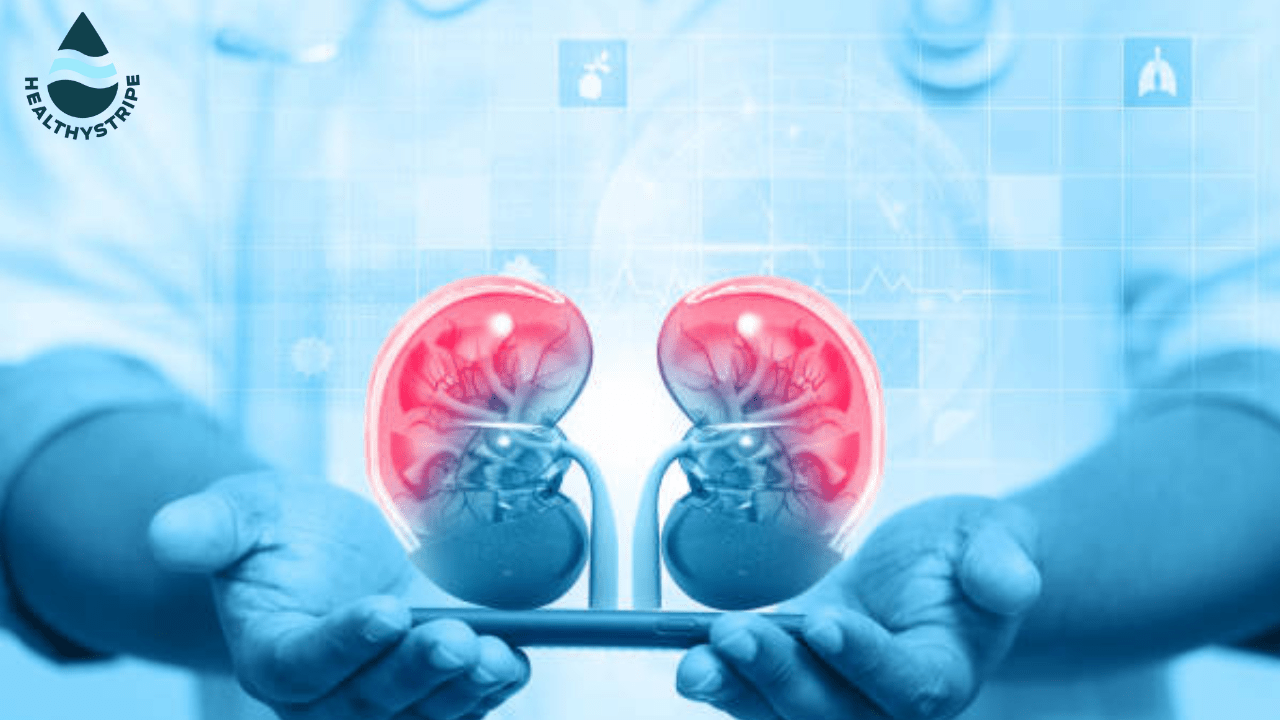10 Potential Intermittent Fasting Side Effects

According to the World Health Organisation (WHO), the incidence of obesity has approximately tripled in the last 35 years. 39% of people are overweight, and 13% of people are obese. With the increasing trend of obesity, Intermittent fasting has gained significant popularity in recent years as an effective approach towards weight loss and overall health improvement. It involves alternating periods of fasting and eating.
However, like any dietary practice, intermittent fasting has potential side effects, especially when followed for a longer period or without proper planning. This blog will explore ten potential side effects of intermittent fasting, the risks of intermittent fasting, why people quit IF, and provide ways to mitigate the side effects of intermittent fasting effectively. Let’s cut to the chase and get started.
10 Potential Side Effects of Intermittent Fasting:
While intermittent fasting is a valuable strategy, but it can also cause significant side effects. Hani Shalabi et al. studied the benefits and side effects of Intermittent Fasting in 2023. 147 people participated in this research study. Among 147 individuals, 86.8% of females and 83.6% of males were satisfied with positive results. Intermittent fasting was not free of side effects. 61.3% of people had headaches, 68% had lethargy, 57.8% had mood swings, 55.8% had dizziness, and 46.2% had polyuria (excessive urination). This study concluded that intermittent fasting is associated with significant side effects.
The following are potential side effects of Intermittent Fasting:
1-Weight loss plateau
One of the main agenda for practicing intermittent fasting is weight loss. Although it can be helpful initially, some people may experience a plateau where weight loss slows down or stops completely. This happens when the body tries to adjust to the new eating pattern, leading to a decrease in metabolic rate. It is critical to incorporate exercise, adjust fasting protocols, and seek guidance from healthcare professionals or nutritionists to overcome this problem.
2-Nutritional deficiencies:
Restricting food intake during fasting periods can potentially lead to inadequate nutrient intake and nutritional deficiencies. A deficiency of vitamins, minerals, and essential nutrients negatively impacts overall health. While practicing intermittent fasting, it is crucial to focus on consuming a varied and nutrient-dense diet during eating windows that includes fresh fruits, vegetables, grains (oat, flour, brown rice, barley, wheat, and grain rye), proteins, and healthy fats (that increase HDL levels and decrease LDL).
Common side effects during the first week of intermittent fasting include hunger, fatigue, cravings, and irritability. According to a research study, intermittent fasting triggers headaches and migraine due to an insufficient supply of glucose to the brain cells.
3-Hormonal changes:
Intermittent fasting may disrupt hormonal balance, especially in women. Potential side effects of intermittent fasting in females include irregular menstrual cycles, hormonal imbalances, and decreased fertility. These side effects are usually more pronounced in individuals who follow aggressive intermittent fasting. People with pre-existing hormonal problems are prone to hormonal imbalance. For example, females with PCOS usually have hormonal imbalances and intermittent fasting can worsen it if they don’t take nutrient-dense diets.
4-Headaches and low energy:
During the initial stages of intermittent fasting, some individuals may experience headaches and low energy levels. Common fasting-related side effects may include fatigue, irritability, dehydration, dizziness, and difficulty concentrating. These symptoms are typically transient and tend to resolve as the body adapts to the fasting routine.
Headaches may be attributed to factors such as dehydration, caffeine withdrawal, or fluctuations in blood glucose (sugar)levels.
To minimize these side effects, it is recommended to stay hydrated, get adequate rest, and gradually ease into fasting protocols.
5-Digestive issues:
Intermittent fasting can sometimes lead to digestive disturbances such as constipation, abdominal pain, bloating, and gastroesophageal reflux disease (GERD). These issues occur due to changes in meal timing and inadequate fiber intake.
People who practice a combination of a keto diet and Intermittent fasting may have symptoms of keto flu, such as fatigue, nausea, and brain fogginess. These are usually exacerbated during fasting periods.
6-Muscle loss:
While intermittent fasting primarily targets fat and glycogen stores for energy, there is a possibility of muscle loss, especially during prolonged fasting periods. If you are practicing intermittent fasting, you have to maintain a balanced diet with adequate protein intake during eating windows to prevent muscle loss.
7-Impact on social life:
Intermittent fasting can have an impact on social interactions, especially during fasting periods. It may become challenging to attend social events centered around tasty meals. It can lead to feelings of isolation or exclusion from the community. Communication of dietary choices to friends and family, finding supportive communities, and exploring alternative activities during fasting periods can help mitigate the impact on social life.
8-Disordered eating patterns:
For some individuals, intermittent fasting may trigger or worsen the symptoms of eating disorders. The strict fasting protocols and the potential obsession with food can cause various eating disorders and mental health problems. It is crucial to approach intermittent fasting with a balanced mindset and be aware of any signs of disordered eating. If there is a history of any eating disorders like anorexia nervosa or bulimia nervosa, consult with healthcare professionals before starting any fasting regimen.
9-Potential for nutrient timing obsession:
Intermittent fasting is useful dietary practice but it can also make you obsessed with nutrient timing and eating windows. This obsession can detract from the overall goal of achieving a balanced and sustainable dietary approach. It is important to remember that individual needs and preferences may vary, and finding a personalized approach that suits your lifestyle and goals is critical.
10- Rebound weight gain:
Using intermittent fasting as a short-term solution without adopting long-term sustainable habits carries the risk of rebound weight gain, changes in energy levels, and disruptions in appetite regulation. Once fasting is discontinued, most individuals return to previous eating habits that result in weight regain. It is critical to establish a balanced and healthy relationship with food and incorporate nutritious choices and mindful eating practices to get maximum and long-term effects.
Why Are People Quitting Intermittent Fasting?
Most people are quitting intermittent fasting due to its potential side effects as mentioned above. It can adversely affect people with underlying health conditions like diabetes, hormonal issues, eating disorders, and nutritional deficiencies. It can be fatal for diabetics because they need to maintain their blood sugar levels. Extremely low blood sugar levels can lead to brain damage and even death.
Some people can not withstand the challenges of intermittent fasting, especially in the first week. Dehydration, low blood sugar levels (hypoglycemia), fatigue, dizziness, and lethargy can make people quit this dietary practice.
How to Manage Side Effects of Intermittent Fasting:
Intermittent fasting can be helpful if you follow it strategically. It is associated with short-term and long-term side effects. The following are ways to manage the side effects of intermittent fasting:
1-Long-Term Effects: Prioritizing Nutritional Balance
To mitigate the potential long-term side effects of intermittent fasting, it is crucial to prioritize a well-balanced diet during your eating windows. Try to consume a variety of foods, such as fresh fruits and vegetables rich in dietary fibers, lean proteins, and whole grains.
By adding these nutrient-dense foods to your meals, you can ensure that your body has enough levels of essential vitamins, minerals, and macro and micronutrients to maintain optimal health. Additionally, if you have severe nutritional deficiencies, consider taking multivitamins and consult with a registered dietitian or nutritionist to address these concerns.
2-Addressing Fasting Side Effects: Staying Comfortable and Energized
During fasting, you may experience side effects such as fatigue, irritability, and difficulty concentrating. To manage these side effects effectively, it’s vital to prioritize hydration by drinking plenty of water during fasting periods. Dehydration can contribute to headaches and fatigue, so maintaining adequate hydration is crucial.
Additionally, gradually easing into fasting protocols can help your body adapt more smoothly and minimize any discomfort. Lastly, prioritize rest, get quality sleep to support your overall well-being, and reduce the impact of fatigue.
3-Managing Side Effects in Females: Balancing Hormonal Well-being
Females may experience various side effects due to hormonal differences. Monitoring your menstrual health is important, and any changes should be closely observed. If concerns arise, it is recommended to consult with healthcare professionals who can provide appropriate guidance. Adjusting fasting protocols by adopting less restrictive schedules or shorter fasting periods may support hormonal balance.
Additionally, emphasize nutrient-dense meals during eating windows that can provide the necessary vitamins, minerals, and healthy fats to support overall hormonal well-being.
4-Safety Considerations: Seeking Professional Advice
If you have any pre-existing comorbidity like diabetes, liver or kidney problems, or eating disorders, or you are a pregnant or breastfeeding mother, always consult your healthcare professional before starting intermittent fasting.
Your nutritionist will craft a personalized diet plan according to your body’s needs, considering your health condition.
5-Hydration and Balanced Nutrition:
Headaches are a common side effect of intermittent fasting. You should stay adequately hydrated while practicing intermittent fasting to maximize its benefits. You can add electrolytes into your hydration routine to replenish essential minerals and maintain electrolyte balance.
You can gradually reduce caffeine intake instead of abruptly stopping it to minimize withdrawal symptoms and associated headaches. Consume balanced meals during eating windows, which consist of proteins, healthy fats, and carbohydrates. They help stabilize blood sugar levels and reduce the likelihood of headaches.
6- Right Balance between ketogenic (keto) diet and intermittent fasting:
A combination of a ketogenic diet and Intermittent fasting has become popular. However, it’s important to navigate this combination with caution. Paying attention to macronutrient balance is crucial. Ensure that you are taking a sufficient amount of healthy fats and proteins during eating windows to support ketosis and maintain energy levels. Additionally, mindful electrolyte intake is important to prevent imbalances commonly associated with the keto diet.
7-Post-Fast Management and Reintroduction:
When ending an intermittent fasting regimen, transitioning back to a regular eating pattern should be done gradually and mindfully. Practice portion control and pay attention to portion sizes to avoid excessive calorie intake and support weight management. Engage in exercise and regular physical activity to maintain a healthy weight and support overall well-being after quitting intermittent fasting.
8-Dealing with Side Effects during the First Week: Patience and Self-Care
The first week of intermittent fasting can be challenging as your body adjusts to the new eating patterns. Try to engage in distractions like hobbies or physical activities during fasting periods to manage these problems. Stay well-hydrated by drinking water and herbal tea to alleviate initial side effects. Focus on consuming nutrient-rich meals during eating windows to provide sustained energy and meet your body’s nutritional needs.
What Happens When You Stop Intermittent Fasting?
While Intermittent fasting has gained immense popularity in the health and wellness realm, it’s natural to wonder about the effects when you decide to discontinue intermittent fasting. You may face the following challenges when you stop Intermittent fasting:
1-Metabolism Adjustments:
Once you stop intermittent fasting, your metabolism may undergo a period of readjustment. During fasting periods, your body adapts to utilizing stored fat as an energy source. When you resume regular eating patterns, your body might need time to recalibrate and restore its balance. The duration of this adjustment period can vary among individuals, so it’s essential to be patient as your body finds its equilibrium.
2-Hunger and Fullness Signals:
Intermittent fasting can influence your hunger and fullness cues. By practicing fasting, you become more attuned to your body’s signals, differentiating between genuine hunger and emotional or habitual cravings. After discontinuing intermittent fasting, it’s common for these cues to evolve. You may notice different hunger patterns or a need to reassess your portion sizes. Listening to your body’s signals and adapting your eating habits accordingly can help maintain a healthy relationship with food.
3-Weight Management:
Intermittent fasting can serve as an effective tool for weight loss and weight management. When you stop intermittent fasting, it’s essential to be mindful of your eating habits to prevent potential weight regain. Without the structure of time-restricted eating windows, it becomes crucial to focus on maintaining a balanced diet and practicing portion control to support your weight management goals.
4-Energy Levels and Mental Clarity:
Some individuals report increased mental clarity and improved energy levels during intermittent fasting. After discontinuing fasting, you may notice subtle changes in these areas. Paying attention to factors like meal composition, hydration, and quality of sleep can help sustain optimal energy levels and cognitive function.
5-Digestive Changes:
Intermittent fasting can affect your digestive system, and when you stop fasting, you might experience adjustments in gut health and digestion. Some individuals may notice changes in bowel movements, while others may find their digestive processes become more regular. Nurturing a balanced and varied diet, rich in fiber and nutrients, can support a healthy gut and digestive system.
6-Emotional and Psychological Factors:
Intermittent fasting can provide psychological benefits, such as a sense of discipline and control over eating habits, for some individuals. When you discontinue intermittent fasting, it’s important to be aware of any emotional or psychological effects that may arise. You may experience a sense of freedom or relief or need to navigate potential emotional challenges related to your relationship with food. Prioritizing mental well-being and seeking support if needed is vital during this transition.
Conclusion
Intermittent fasting can offer numerous benefits when practiced correctly and with an understanding of potential side effects. While the discussed side effects are possible, only some experience them. By approaching intermittent fasting with a balanced mindset, ensuring adequate nutrition, and listening to your body, you can navigate these potential side effects and find a sustainable approach that works for you. It is always recommended to consult with healthcare professionals or registered dietitians before making significant changes to your diet or lifestyle.
Can fasting have negative effects?
How long do intermittent fasting side effects last?
The duration of intermittent fasting side effects can vary among individuals. In most cases, any side effects experienced during the initial stages of intermittent fasting, such as headaches or digestive issues, tend to resolve within the first week or two as the body adjusts to the new eating pattern.
Is it okay to do intermittent fasting every day?
Yes, it is generally safe to practice intermittent fasting every day as long as it is done in a healthy and sustainable manner. However, it’s essential to listen to your body and consult with a healthcare professional if you have any underlying health conditions or concerns.
Is intermittent fasting causing inflammation?
Intermittent fasting has actually been found to have potential anti-inflammatory effects in some studies. It may help reduce inflammation in the body by improving insulin sensitivity and promoting autophagy, but the individual response may vary.
Why is 16 hours the magic number for fasting?
The 16-hour fasting window is a popular approach known as the 16:8 method in intermittent fasting. This time frame is considered significant because it allows the body to deplete glycogen stores and shift into a state of ketosis, where it starts utilizing stored fat for energy.









